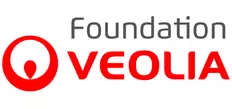It was back-to-school for some, back from mission for others. Thomas Schwarz, a Veoliaforce volunteer from Veolia Eau Ile-de-France (VEDIF), returned in early September after two weeks in Bangladesh. Assigned by the Veolia Foundation to the United Nations' International Office for Migration (IOM), he worked on optimizing Saniforce, the Veolia Foundation's fecal sludge post-treatment solution for the humanitarian sector.
Had you previously worked on sanitation in humanitarian contexts?
Thomas Schwarz: I had discovered Saniforce during initial field tests in a space made available by Veolia, in Limay, at the end of 2023. When I was called in July to offer me an assignment in Bangladesh, my professional agenda was constrained by the Olympic and Paralympic Games, which I was involved in. So I had to find the right timing between this limited availability, the needs on the ground, and the security context following the demonstrations that led to the fall of the Bangladeshi government at the end of July.
You spent almost two weeks with teams from the International Office for Migration (IOM). How did the collaboration go?
TS: Expectations are high, and that's normal. For a week, I worked night and day, at night to proofread, check and prepare... During the day, I carried out tests and answered questions from staff working on the project. After ten days, an expert from IOM, who had seen the Saniforce a few weeks earlier, joined us. Big smiles! He was there because he could see how the system had evolved and how much we could do better or even more. Me, because the optimizations that had required a great deal of effort were therefore relevant.
What was the most difficult part of this type of assignment?
TS: The hardest part was getting people to understand the value of working on this or that aspect of a solution that was already working. You change one point, it doesn't work anymore, you change it again, it still doesn't work, but it allows you to imagine something else and, after further trials, come up with a system that works better. The iteration phase is not always easy to understand, and requires a certain amount of pedagogy.
The mission took place in Cox's Bazar, where almost a million Rohingyas have taken refuge. This was your first exposure to refugee camps.
TS: To discover that the subject of the Rohingyas, which we first heard about a few years ago, is still very present, that over a million people are living in camps, is a shock! Many of them have been there for years, or were even born here…
And on your return...
TS: “How was your vacation?” asked some colleagues I hadn't seen since their leave :-)! On a more serious note, I quickly got back to my daily routine, keeping an eye on Saniforce and its future developments.
Other volunteers mobilized
The Saniforce Solar tests in Bangladesh gave rise to other Veoliaforce missions.
Read Melvin Radlo's account of his mission to Bangladesh in early July.







